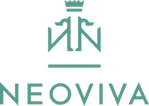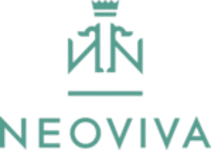In the best case, exploring and defining the nature of addiction is crucial for deciding on the most effective recovery treatment. While we explain the currently prevailing view to you in this blog post, we also look at the most discussed alternative models.
Why do people become addicted? How do they become addicted? And why can’t they just stop if it’s not good for them?
When it comes to addiction, one tends to approach the topic cautiously by asking questions rather than making poignant opening statements. Many people don’t understand the nature of addiction and this is not surprising given the number of opinions surrounding the subject. Maybe you’ve read somewhere that it is a choice, that those who abuse substances lack willpower and moral principles, perhaps someone even told you it is an illness! And depending on how we “classify” addiction, our behaviour and views change. For instance, people often treat and view an addicted person more leniently if their addiction is a disease and not a choice. Why? Because choice entails responsibility, if you are seen as responsible for actions with harmful consequences – the shame is on you!
The “If” and the “How”
To learn more about the nature of addiction means to know if and how we can stop that terrible harmful process. Is it a choice? Then «just say no», to quote Nancy Reagan’s legendary offhand comment. Is it a disease? Then take your medication. In short: without knowing which factors cause addictions, we cannot decide on either cure or treatment.
With decades of research in the field, scientists still do not agree on how to qualify it. Among scientists and practitioners, the description of addiction remains more or less stable, it may include behaviours such as gambling and gaming, but it is generally in line with the World Health Organisation’s (WHO) understanding that it involves both physical and psychological dependence without excluding the hazardous and harmful nature of all problematic use of substances.
Disagreement, however, may arise from the question of how to classify addiction, i.e. whether it is an illness, a learned behaviour, a choice or a symptom of psychological distress. Each of these approaches takes on concepts from distinct models of which there are many but here let’s concern ourselves with those that directly impact how treatment and recovery are handled and viewed.
The Disease Model
Today, most researchers, health professionals and government organisations classify addiction as a disease. Originally described in relation to alcohol abuse in the eighteenth century as a “disease of the mind” the concept has evolved to align with a more recent medical understanding of the role of genetics in addiction. The main tenet of this model is that a minority of people have a primary condition that once it emerges through sustained use of a substance it becomes progressive and insidious. As the substance use continues, you accumulate physical, social and personal problems. If the condition fully develops you are unable to stop your use. Loss of control, denial and cravings are seen as the main symptoms of the disease.
In the disease model, the condition is incurable, but treatment in the form of craving control, abstinence along with the management of the secondary health harms produced by the substance abuse is necessary. The contribution of genetic theories of addiction introduces the ideas of predisposition and likelihood and does not exclude the influence of the environment in the development of addictions. Last but not least, due to its classification as a diagnosable disease, the health care systems are compelled to offer medical treatment options – and society tends to offer compassion as you are certainly not to blame for being ill.
Yes, but …
… a strictly biological view of the disease model is being challenged by numerous experts who refer to a range of counterarguments, among them the following:
- Proponents of this model have not been able to pinpoint what exactly makes addicts different to the general population. The progression and insidious descent into loss of control, cravings, consumption and denial describe behaviours rather than prove a disease.
- Most affected people do not undergo treatment to overcome addiction. They eventually reduce or stop their addictive actions themselves, be it due to changing perspectives, be it thanks to the support of their social circle, or because the needed substance no longer is available to them. Many reasons, one outcome: natural recovery from addiction is the norm.[i] That does not sound like an illness to the model’s critics.
- Saying that someone has a disease may reduce the burden of feeling responsible for their condition, but it also can turn them into “helpless victims” and passive recipients of a service, i. e. medical treatment. It can undermine their self-efficacy and the potential to develop the belief that they do have the ability to change their addictive behaviour. Factors like willpower, rejigging habits, a new environment or emotional growth have been vital changes that can help overcome addiction. What seems to work for addiction cannot be applied universally: Can they beat other diseases like cancer and diabetes in the same way? Alas, no.
- The stigma of addiction is not necessarily linked with its qualification as a disease or not. On the one hand, we can be glad that the society of the 21st century has evolved from Victorian settings when addicts were denigrated as spineless pariahs. Numerous famous and esteemed figures like Robin Williams and Elton John have made their struggle with addiction public. While we have learned to recognise this suffering as a consequence of life circumstances rather than a personal flaw, a disease model still locates the problem in the individual.
The Choice Model
«If he really wanted to stop, he would!» – «If she cared enough about our family, she would stop!» – «His life’s become a disaster. Well, he made his choice, he’s got what was coming!»
Often expressed by an addicted person’s family, friends or loved ones, thoughts like these are based on the belief that the addicted person continuously decides to exert the addictive behaviour. This model is based on behavioural economics and posits that people weigh up the benefits and advantages against disadvantages when making a choice. Free will is not influenced by biology or the environment. Rather, the benefits of satisfying a craving outweigh the health benefits of quitting as long as a substance is valued above its consequences. The main take-home message is that if our own decision is at the centre of addiction, helping an addict explore motivation at a critical time may tilt the balance towards a path that leads to recovery. Perhaps, the best evidence for this model is that many people manage to quit their addictions with and without support on their own accord.
Yes, but …
While the first use of drugs or the first drink most probably was a conscious choice, choice will have left the building when repeated use develops into an addiction to the «chosen» substance. One of the main criticisms of this model is that addictive behaviours seem to be compulsive (a key element in any addiction). This slide into compulsion is a gradual one. Even more problematic is the idea that people with addictions actively choose it and would not by choice quit the substance they use, given a chance. As anyone who has spoken to smokers knows, many of them, very often regret having taken up their addiction and would trade places with non-smokers if they felt they could.
The Learned Behaviour Model
One of the striking elements of this model is that it does not single out people with addiction, but rather sees it as something that can happen to anybody under the right circumstances. This model dismisses the notion that simple exposure to a drug can cause addiction. Instead, exposure must occur as an experience that a person finds pleasant or useful, and it must be deliberately repeated to the point where it feels as though you cannot live without it. This combination of repetition, need, and relief causes the brain to adjust its processing mode from intentional to habitual, from deliberate to automatic. It will overvalue pleasure, undervalue risk, and – misguidedly – learn that the drug or experience is crucial for emotional stability.
Luckily, according to this model, since the brain is constantly learning, learned addictive behaviours can also be «unlearned» and can be replaced by healthier, positive behaviours. Learning theories have influenced other approaches such as the cognitive model. Together, these models put emphasis on the interaction of the individual and the environment. Situations, places, emotions and people can trigger a response that can lead a person to take a substance, to repeat the learned habit or schema of how to behave to cues in the environment and within the self.
Yes but …
… critics, among which are neuroscientists, argue that the brain cannot fully «remould» itself back to its original state. While it may eventually revert to normal functions, its structure will remain significantly altered and may leave recovering individuals struggling with temptation. Thus, instead of returning to «default mode» after treatment, a person in recovery needs to constantly and consciously work on remaining sober each day, making addiction a process of ongoing recovery. Nevertheless, and although it takes time, the re-training of the brain will lead to continuous improvement, the cravings disappear eventually.
The Selfmedication Model
Within psychoanalytical and certain psychotherapeutic approaches there is the common view that addictions are symptoms of underlying emotional distress. There is evidence that addiction may occur more often in the context of trauma such as PTSD or sexual abuse. In this model the use of a substance is secondary to mental health problems, thus addiction can be overcome by treating the underlying emotional distress.
Yes but …
… the link between mental health and addiction is well established but it also presents a chicken-and-egg situation: Does psychological distress precipitate addiction or is it the other way around? Moreover, not all people who experience mental health problems become addicted to substances. Finally, treating underlying psychological distress alone does not bring on recovery. On the contrary, we still need to also address substance abuse. Consequently, many of the successful approaches are those that treat addiction holistically, considering mental health, behaviour and physical well-being.
What do we learn from these concepts?
These models should not be seen in opposition to one another, quite the opposite is true, as they all contribute to the understanding of addiction as a complex subject, true, but one for which there is help.
We are left with the simple fact that many people struggle with addiction. For whatever reason, many are unable to quit on their own, and while they suffer, the impact of their addiction ripples far beyond the afflicted person and affects those close to them. Today, effective treatment of addiction is possible, and anyone in need of therapy deserves the best help we can offer them. Please contact us to learn more about our personalised treatment programme.
Sources
[i] Bischof, G., Rumpf, H.-J., & John, U. (2012). Natural recovery from addiction. In H. Shaffer, D. A. LaPlante, & S. E. Nelson (Eds.), APA addiction syndrome handbook, Vol. 2. Recovery, prevention, and other issues (pp. 133–155). American Psychological Association. https://doi.org/10.1037/13750-006




0 Comments